elemintalshop
Almamy Samori Touré 5 Sylis Guinea Authentic Coin Money for Jewelry (Black Lives Matter) (Freedom Fighter) (1971) (Work Justice Solidarity)
Almamy Samori Touré 5 Sylis Guinea Authentic Coin Money for Jewelry (Black Lives Matter) (Freedom Fighter) (1971) (Work Justice Solidarity)
Couldn't load pickup availability
Almamy Samori Touré 5 Sylis Guinea Authentic Coin Money for Jewelry and Craft Making (Black Lives Matter) (Anti-colonialism) (Freedom Fighter) (1971) (Work Justice Solidarity)
CONDITION: Fine to Exra-Fine
Obverse: Bust of Almamy Samori Touré left
Lettering: REPUBLIQUE DE GUINEE
· 1971 ·
Translation: Republic of Guinea
Reverse: Denomination within wreath
Lettering:
TRAVAIL-JUSTICE-SOLIDARITE
5 SYLIS
LE 1er MARS 1960
Translation: Work-Justice-Solidarity
The 1st of March 1960
Features
Issuer Guinea
Period Republic (1958-date)
Type Standard circulation coin
Year 1971
Value 5 Sylis (5)
Currency Syli (1971-1985)
Composition Aluminium
Weight 2.27 g
Diameter 28 mm
Thickness 2 mm
Shape Round
Orientation Medal alignment ↑↑
Demonetized Yes
Number N# 11939
References KM# 45, Schön# 44
Wikipedia:
Samory Toure (c. 1828 – June 2 1900), also known as Samori Toure, Samory Touré, or Almamy Samore Lafiya Toure, was a Muslim cleric, a military strategist, and the founder and leader of the Wassoulou Empire, an Islamic empire that was in present-day north and south-eastern Guinea and included part of north-eastern Sierra Leone, part of Mali, part of northern Côte d'Ivoire and part of southern Burkina Faso. Samori Ture was a deeply religious Muslim of the Maliki jurisprudence of Sunni Islam. Ture resisted French colonial rule in West Africa from 1882 until his capture in 1898.
Legacy
He is considered a powerful example of resistance to French colonial forces and known for his building collaboration among diverse groups, as well as his war strategies.
His great-grandson, Ahmed Sékou Touré, was elected as the first President of Guinea after it became independent.
In popular culture
Massa Makan Diabaté's play Une hyène à jeun (A Hyena with an Empty Stomach, 1988) dramatizes Samori Ture's signing of the 1886 Treaty of Kéniéba-Koura, which granted the left bank of the Niger to France.
Guinean band Bembeya Jazz National commemorated Ture in their 1969 release Regard sur le passé. The album draws upon Manding Djeli traditions and consists of two epic recordings that recount Ture's anti-colonial resistance and nation-building.
Author Ta-Nehisi Coates references Ture in his book Between the World and Me when explaining to his son where his name Samori came from.
Ivorien reggae superstar Alpha Blondy eulogises Ture in his hit song "Bory Samory" from the Album Cocody Rock.
*******
Wikipedia:
Independence (1958)
In 1958, the French Fourth Republic collapsed due to political instability and its failures in dealing with its colonies, especially Indochina and Algeria. The founding of a Fifth Republic was supported by the French people, while French President Charles de Gaulle made it clear on 8 August 1958 that France's colonies were to be given a stark choice between more autonomy in a new French Community or immediate independence in the referendum to be held on 28 September 1958. The other colonies chose the former, but Guinea—under the leadership of Ahmed Sékou Touré whose Democratic Party of Guinea-African Democratic Rally (PDG) had won 56 of 60 seats in 1957 territorial elections—voted overwhelmingly for independence. The French withdrew quickly, and on 2 October 1958, Guinea proclaimed itself a sovereign and independent republic, with Sékou Touré as president.
President Ahmed Sékou Touré was supported by Communist states, and in 1961, visited Yugoslavia.
In response to the vote for independence, the French settlers in Guinea were quite dramatic in severing ties with Guinea. The Washington Post observes how brutal the French were in tearing down all what they thought was their contributions to Guinea: "In reaction, and as a warning to other French-speaking territories, the French pulled out of Guinea over a two-month period, taking everything they could with them. They unscrewed lightbulbs, removed plans for sewage pipelines in Conakry, the capital, and even burned medicines rather than leave them for the Guineans."
Post-colonial rule (1958–2008)
Subsequently, Guinea quickly aligned itself with the Soviet Union and adopted socialist policies. This alliance was short-lived; however, as Guinea moved towards a Chinese model of socialism. Despite this, the country continued to receive investment from capitalist countries, such as the United States. By 1960, Touré had declared the PDG the country's only legal political party, and for the next 24 years, the government and the PDG were one. Touré was reelected unopposed to four seven-year terms as president, and every five years voters were presented with a single list of PDG candidates for the National Assembly. Advocating a hybrid African Socialism domestically, and Pan-Africanism abroad, Touré quickly became a polarising leader, with his government becoming intolerant of dissent, imprisoning thousands, and stifling the press.
Throughout the 1960s, the Guinean government nationalised land, removed French-appointed and traditional chiefs from power, and had strained ties with the French government and French companies. Touré's government relied on the Soviet Union and China for infrastructure aid and development, but much of this was used for political and not economic purposes, such as the building of large stadiums to hold political rallies. Meanwhile, the country's roads, railways and other infrastructure languished, and the economy stagnated.
On 22 November 1970, Portuguese forces from neighboring Portuguese Guinea staged Operation Green Sea, a raid on Conakry by several hundred exiled Guinean opposition forces. Among their goals, the Portuguese military wanted to kill or capture Sekou Toure due to his support of the PAIGC, an independence movement and rebel group that had carried out attacks inside Portuguese Guinea from their bases in Guinea. After fierce fighting, the Portuguese-backed forces retreated, having freed several dozen Portuguese prisoners of war that were being held by the PAIGC in Conakry, but without having ousted Touré. In the years after the raid, massive purges were carried out by the Touré government, and at least 50,000 people (1% of Guinea's entire population) were killed. Countless others were imprisoned and faced torture. Often in the case of foreigners, they were forced to leave the country, after having had their Guinean spouse arrested and their children placed into state custody.
Share
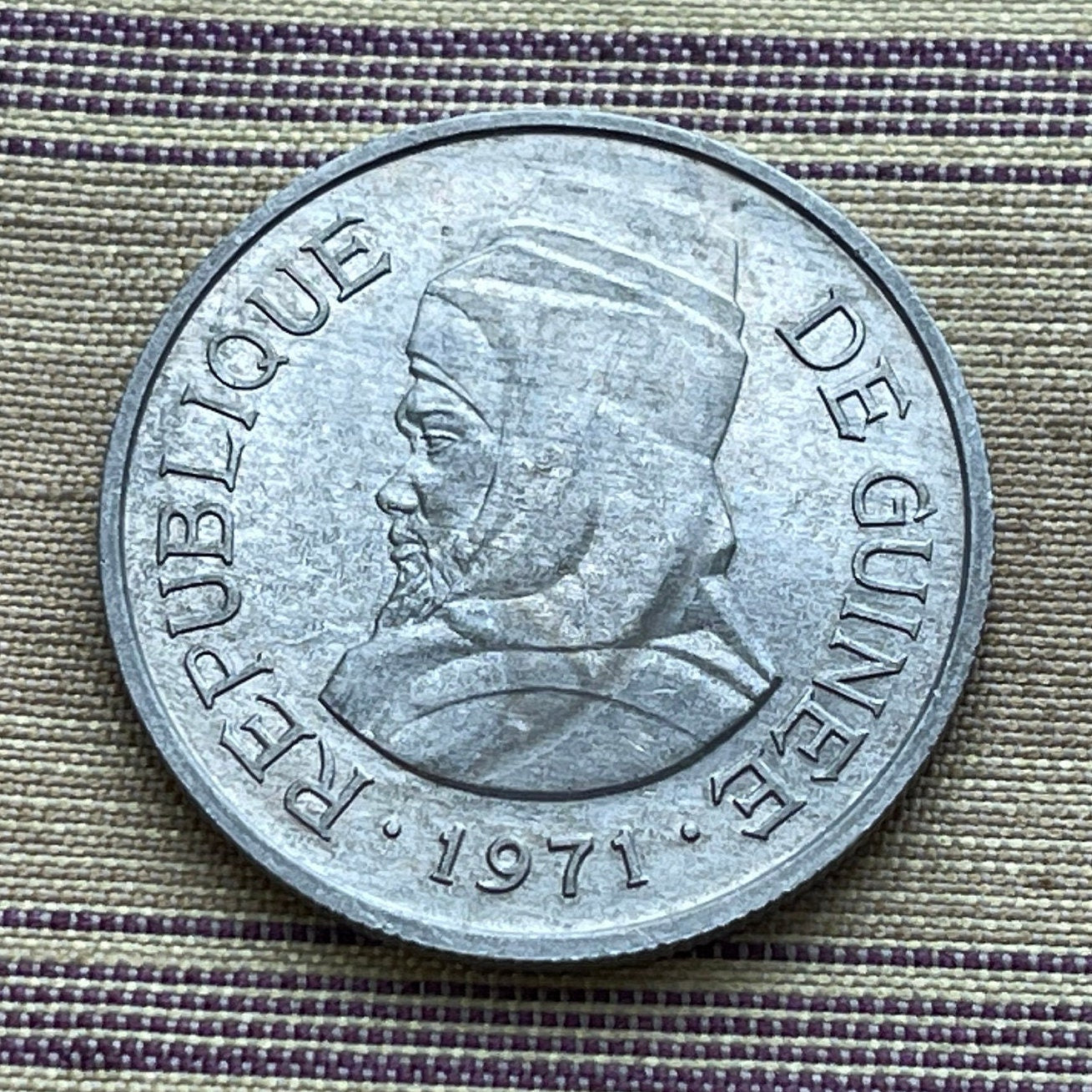
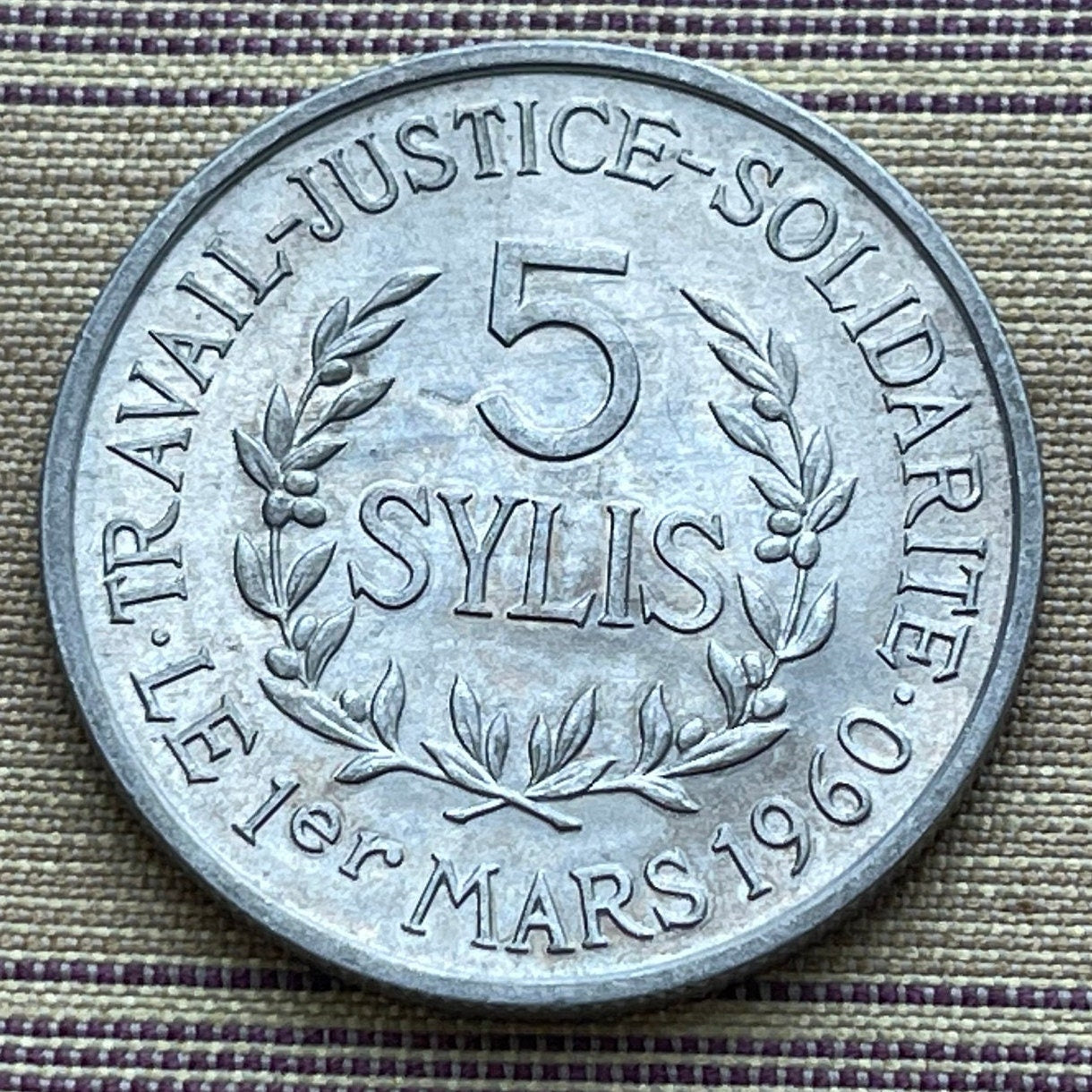
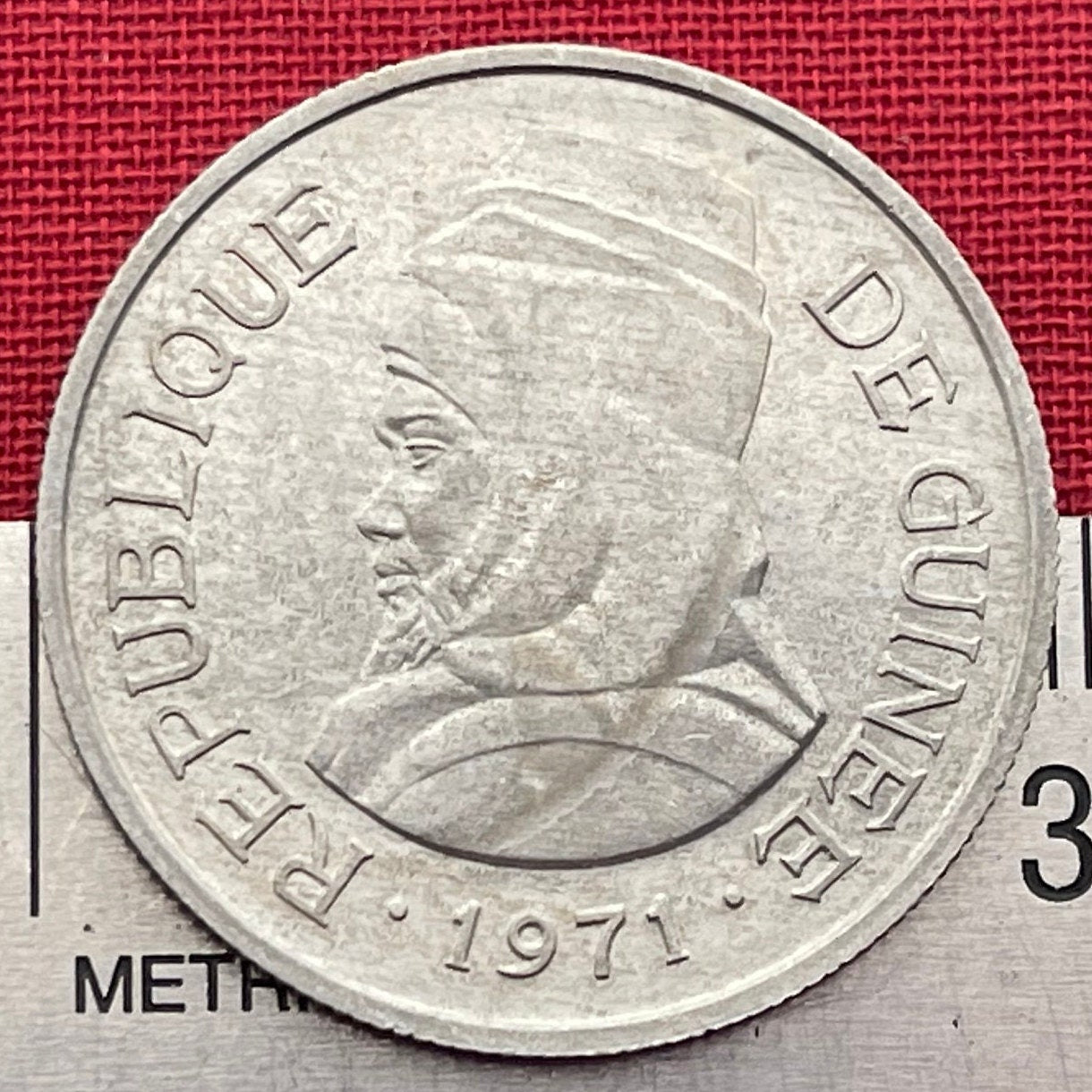
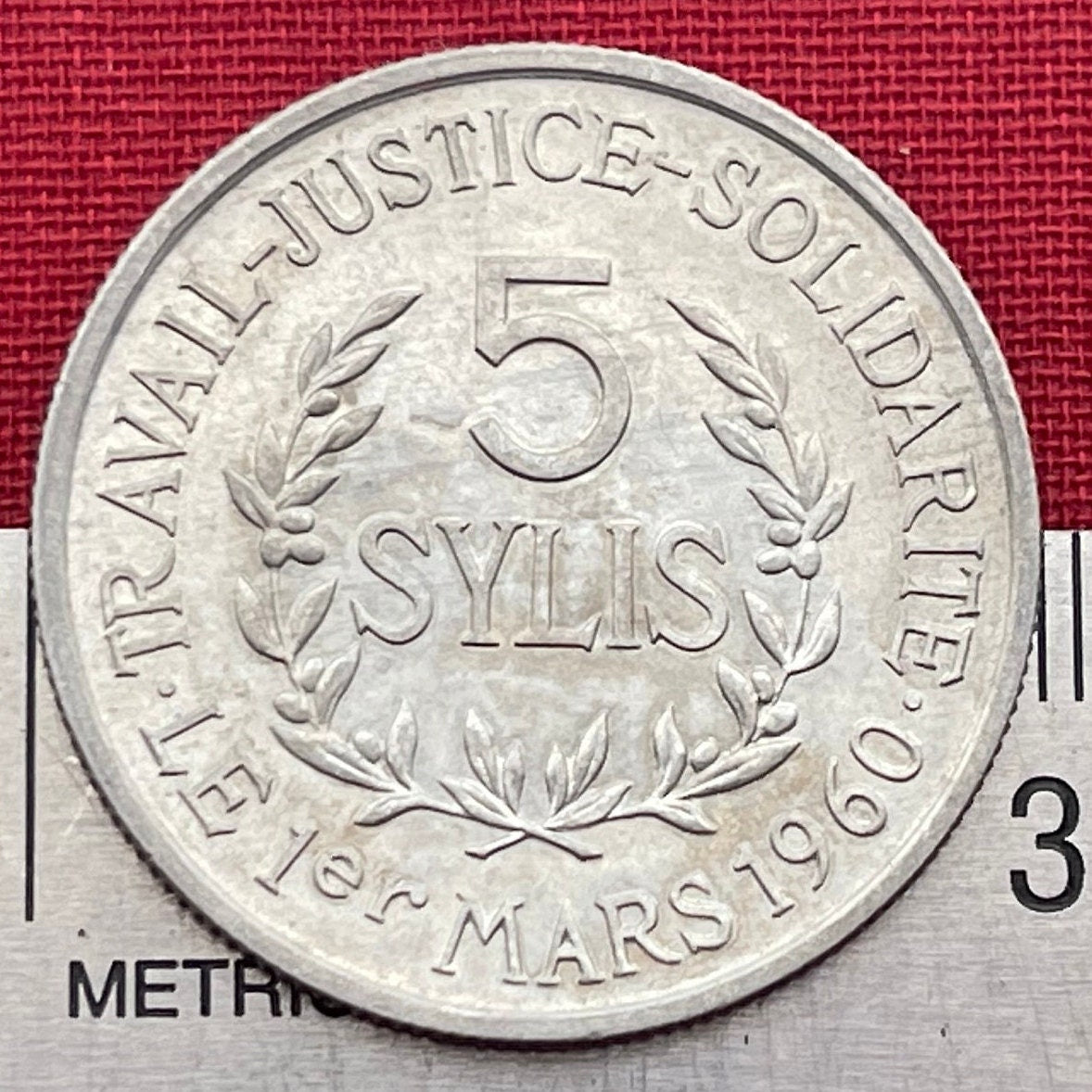
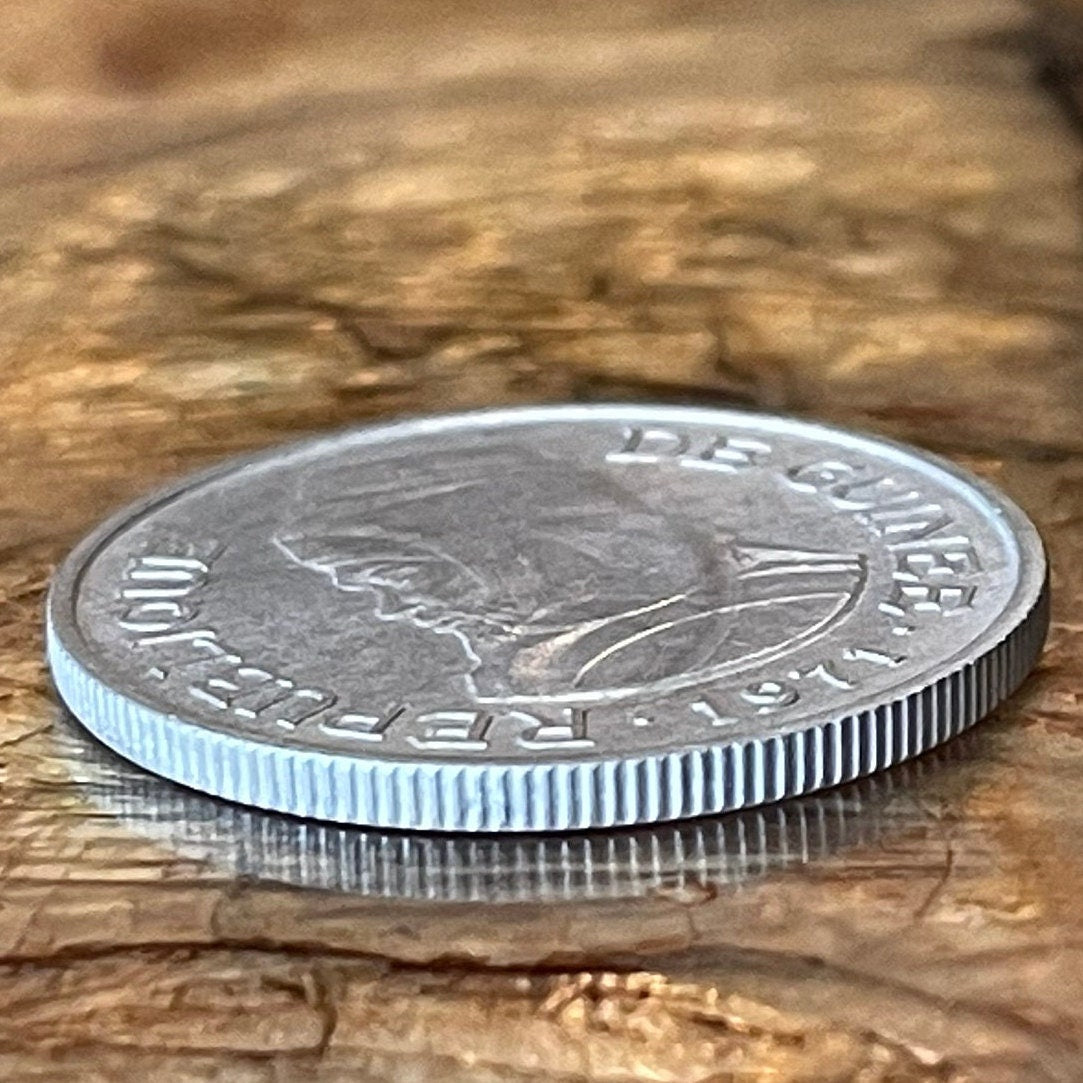
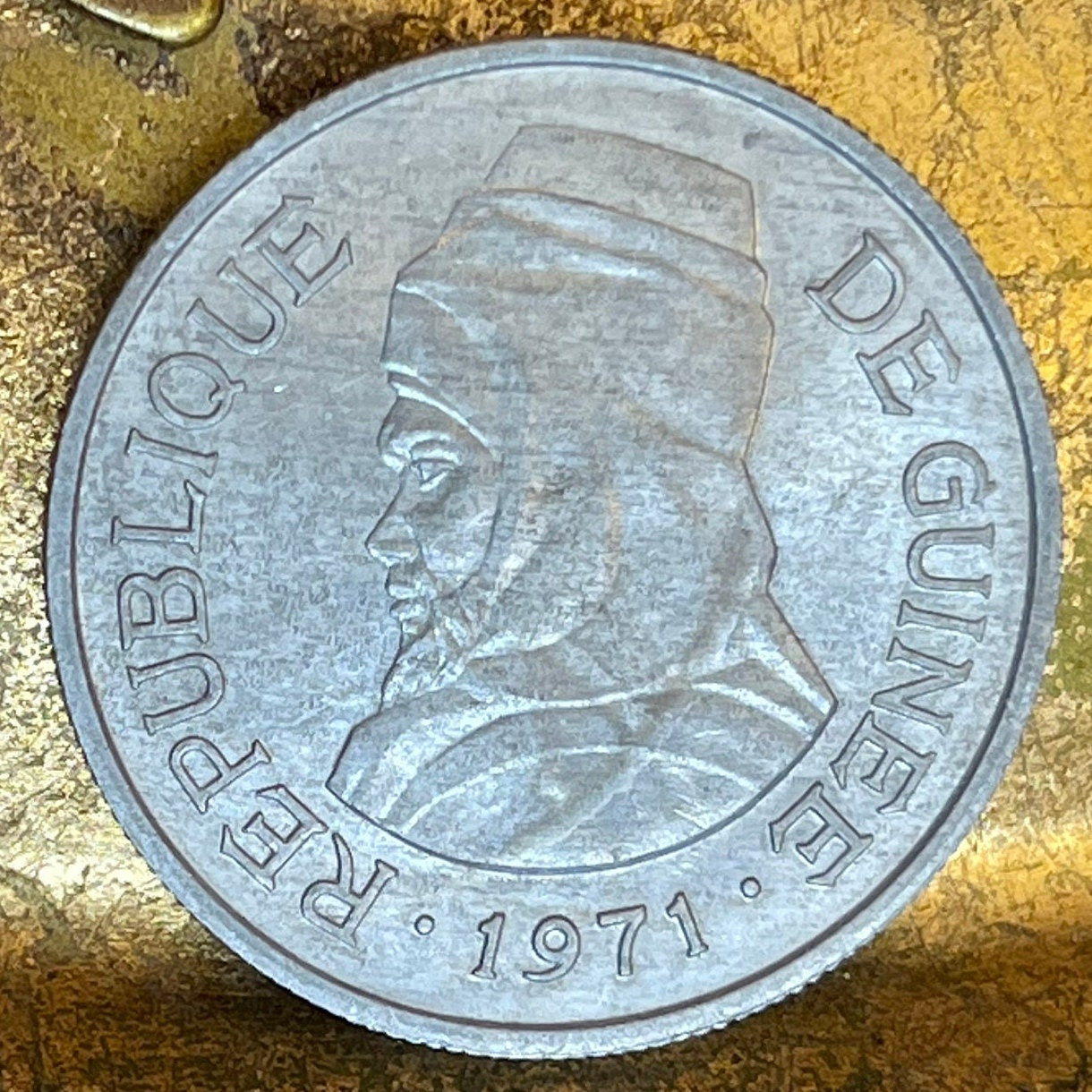
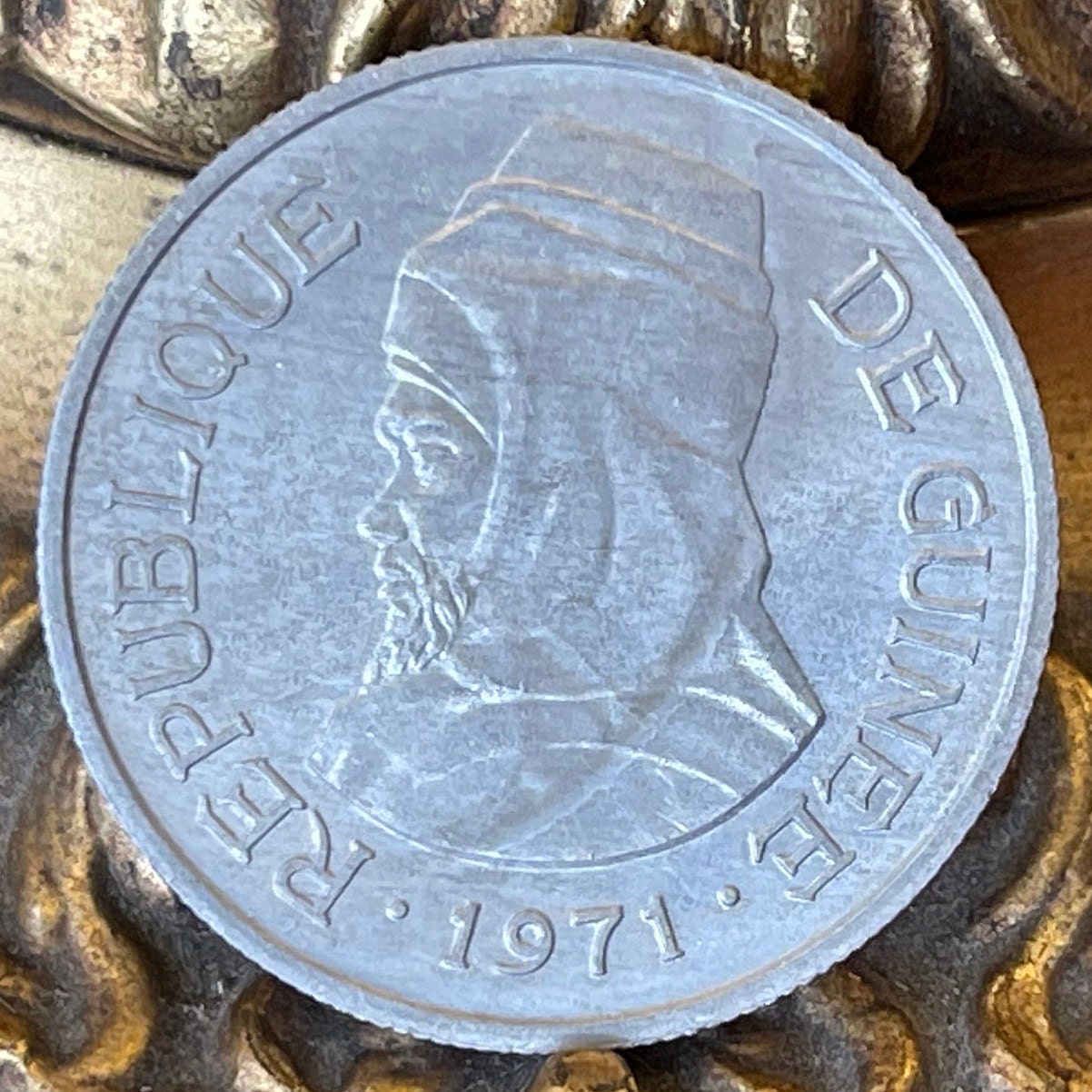
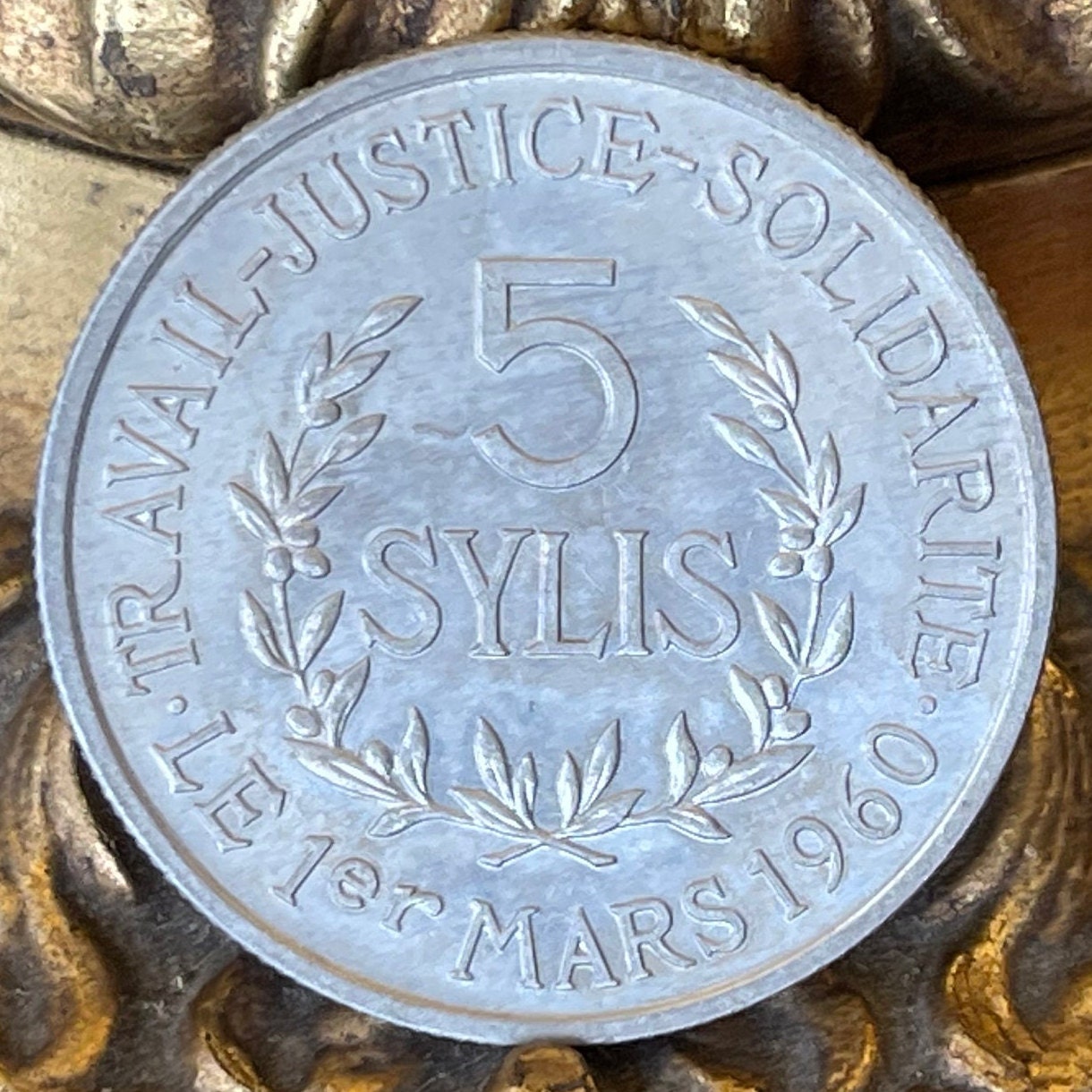
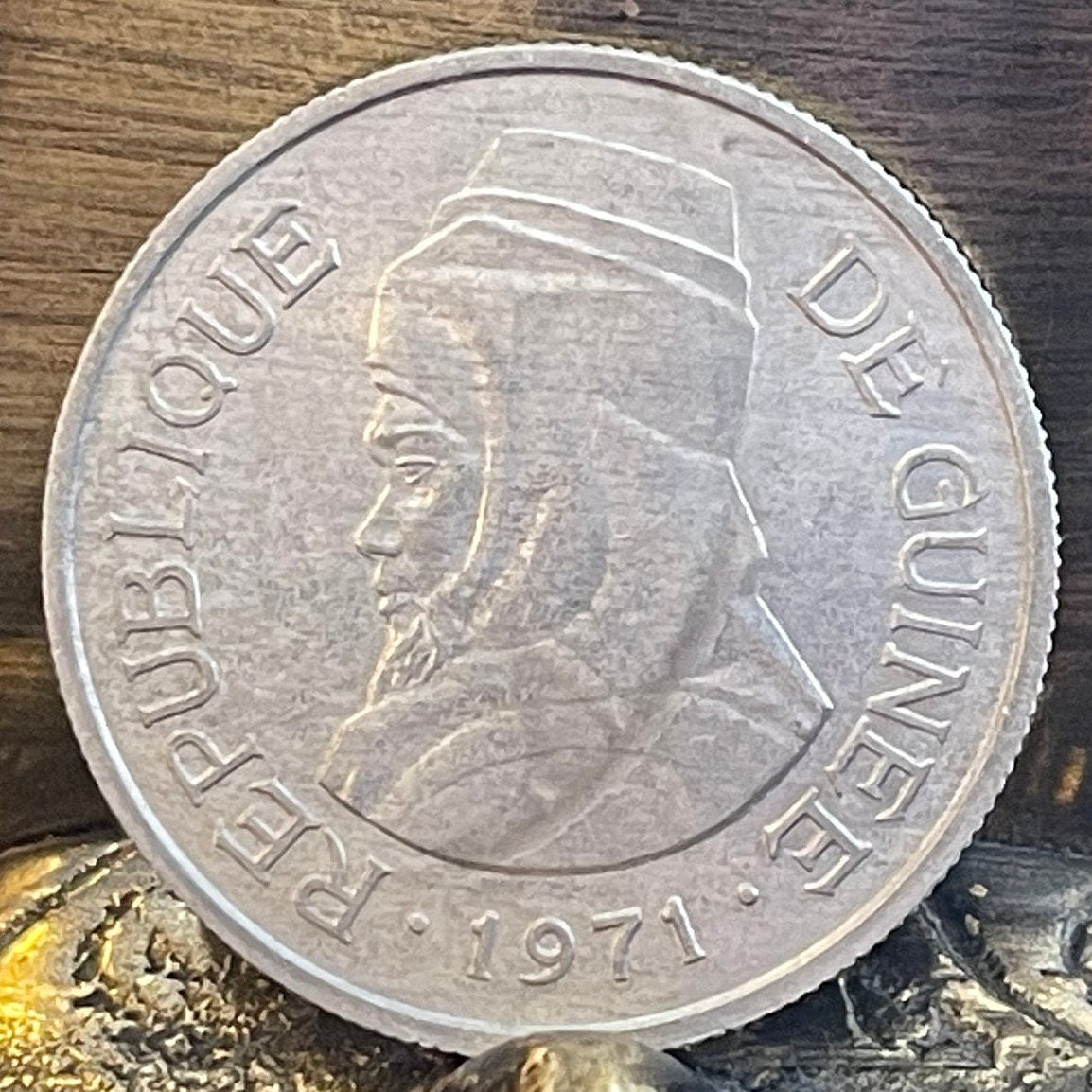
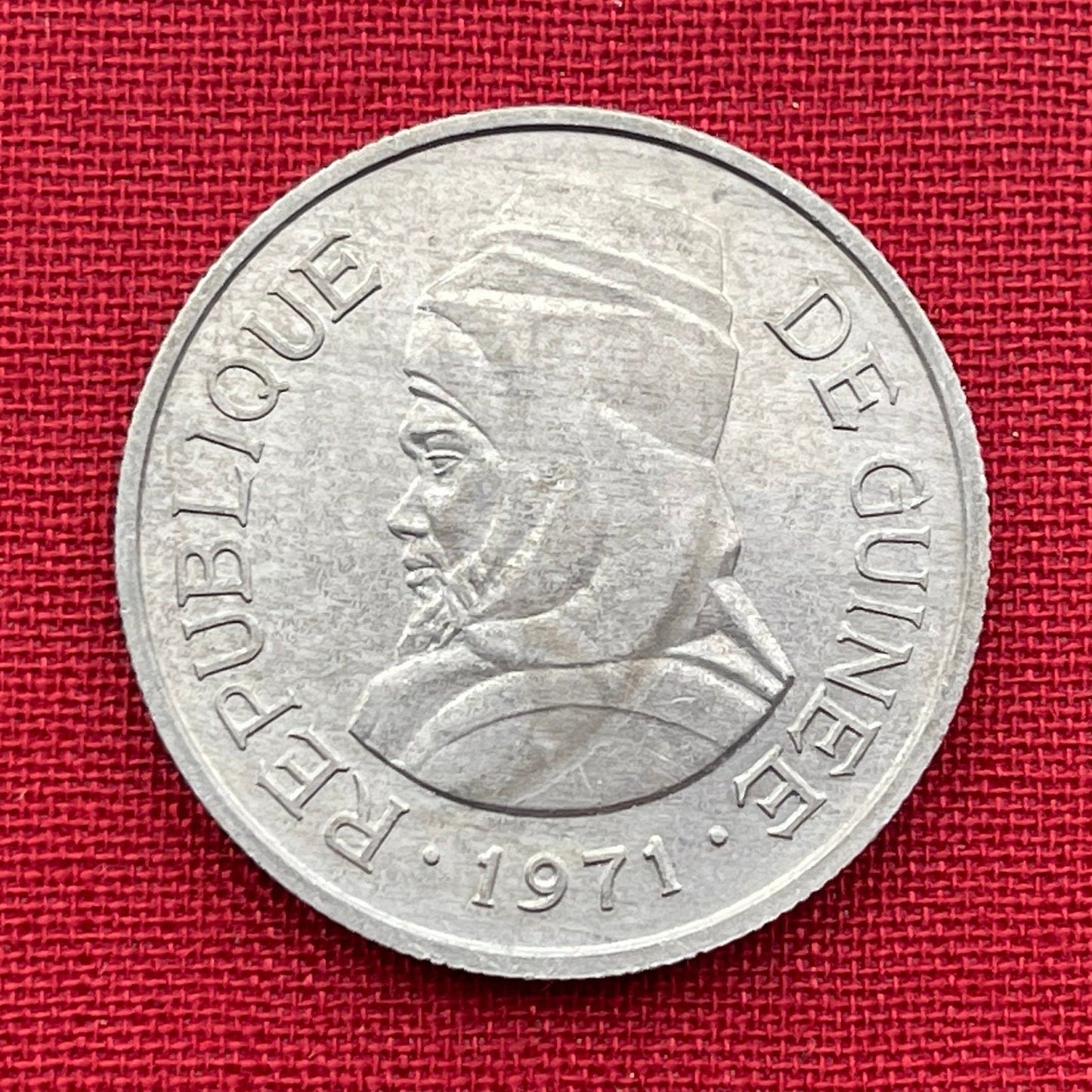
Nice coins for my collection.
A hard coin to find.









